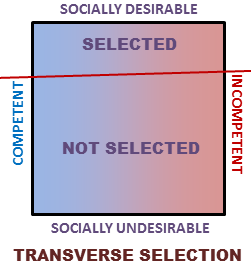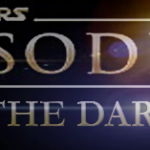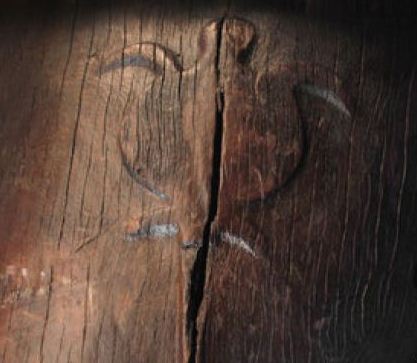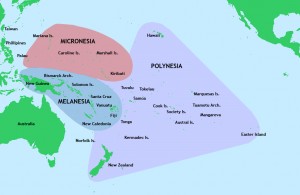 I suppose I should say something now that Amazon and Hachette have ended their dispute by signing a multi-year contract. After all, I’ve had plenty to say about it up to this point.
I suppose I should say something now that Amazon and Hachette have ended their dispute by signing a multi-year contract. After all, I’ve had plenty to say about it up to this point.
Monthly Archives: November 2014

 In discussing a recent stop-gap installment in a popular fantasy series, Jim Bennet at the Deseret News offers this critique of anti-plot elitism in literary criticism:
In discussing a recent stop-gap installment in a popular fantasy series, Jim Bennet at the Deseret News offers this critique of anti-plot elitism in literary criticism:
The fact is that there are plenty of pointless, pretentious stories out there, along with snooty supporters of these stories who denigrate the people who aren’t part of the club. If someone dares to point out that the emperor has no clothes, that someone obviously isn’t smart enough to appreciate the finer things in life. You see this attitude in English departments in universities all across the country. In the mind of the professorial class, true literature consists entirely of impenetrable books that require the intervention of academia in order to make any sense of them at all. Books that people actually love to read are dismissed as juvenile, silly and a waste of time.
There may have been a time when I cared what others thought of my literary tastes. But that time has long since passed. At this stage in my life, I expect stories to include plots that are clear and compelling and characters that matter to me.
If that makes me a rube, so be it. At least with the rubes, the reading’s a whole lot better.
I would phrase it this way.
There are many ways that a story can be valuable: (a) well-written prose, (b) compelling characters or setting, (c) sophisticated ideas, (d) clear plot. Subtracting any of these subtracts from the value of the story.
a + b + c < a + b + c + d
 The consequences of transverse selection are now being exposed in the US military, with one Air Force colonel complaining that the Service’s physical fitness standards select against too many airmen who excel at their actual job requirements.
The consequences of transverse selection are now being exposed in the US military, with one Air Force colonel complaining that the Service’s physical fitness standards select against too many airmen who excel at their actual job requirements.
Of course, physical readiness is certainly important to military readiness, but it is no longer the cornerstone of most military occupations, particularly in the Navy and Air Force.
Like those archaic pike and musket formations that still guide our social construction of what military discipline is all about, the over-emphasis of physical over mental readiness is a lingering trope that desperately needs reform.
In the Information Age, “fit for service” means much more than body fat percentage and push-ups per minute, and clinging to out-dated social ideals of the perfect warrior drives a bad selection process that costs us good Service members, which costs lives, and could one day cost us a war.

Isn’t it about time we renamed that planet already? Yes, that one.


The latest anti-Amazon tantrum over at Melville House has really taken spin and smug self-delusion to new heights: Continue reading

 You might have heard that the original Grimm fairy tales were far more grim than the cleaned-up versions with which we’ve become familiar.
You might have heard that the original Grimm fairy tales were far more grim than the cleaned-up versions with which we’ve become familiar.
Well, Jack Zipes, a professor of German and comparative literature at the University of Minnesota, decided to translate the earliest edition of these stories into English for the first time, with all of the horror and unsavory details included. Continue reading
 Businesses have a bad habit of backing themselves into corners. For example, the way traditional publishers backed away from their promotional responsibilities, pressuring all but a tiny bestselling minority of authors to run themselves ragged promoting their own books.1
Businesses have a bad habit of backing themselves into corners. For example, the way traditional publishers backed away from their promotional responsibilities, pressuring all but a tiny bestselling minority of authors to run themselves ragged promoting their own books.1
Build a platform! Engage your audience! Brand your work! Do a marketer’s tasks instead of writing!
As it turned out, promotion was one of only a few contributions traditional publishers made to an author’s career. Once online resources (including networking between writers, editors, and cover artists) eliminated the other “middle man” contributions of publishers, there really wasn’t much of a role for traditional publishers among authors who, driven by marketing neglect, had already trained themselves to be self-promoters.
And now one of those traditional publishers, the bumbling and stumbling Hachette, is backing itself into a physical corner by adopting the cheapskate “open office plan” architecture (read: low-walled cube farm) despite the massive flaws researchers have discovered about this set-up. Continue reading

The title for Star Wars episode VII has been released to mixed reviews. Some initially wondered if The Force Awakens was a prank or an Onion article.
What exactly does J. J. Abrams mean? Has the Force been sleeping?
I’m beginning to wonder if my own joke title (playing on the Abrams Star Trek reboot, Into Darkness) wouldn’t have been better.

 I have always been fascinated by the sea (ironic, since I grew up in a landlocked state) and became obsessed with seafaring cultures as an adult. So, when I heard that Disney was planning an animated adventure set in ancient Polynesia, Moana, I knew it was time to talk about the ocean as a fantasy setting.
I have always been fascinated by the sea (ironic, since I grew up in a landlocked state) and became obsessed with seafaring cultures as an adult. So, when I heard that Disney was planning an animated adventure set in ancient Polynesia, Moana, I knew it was time to talk about the ocean as a fantasy setting.
Of course, we have Le Guin’s amazing EarthSea series, and every pirate tale could technically be considered oceanic fantasy, but I am more concerned with the same vast and largely untapped storehouse that Disney is drawing on: the Polynesian cultures of the Pacific.
Polynesia covers about 16 million square miles. Even though this is mostly ocean between the various islands, this is larger than the landmass of Asia. Nevertheless, the peoples of Polynesia are very closely related, their various “languages” separated by sound differences no greater than those that separate what we call “dialects” in spoken Arabic. The neighboring peoples of Melanesia and Micronesia speak languages that are related to Polynesian about as closely as French, Spanish, and Italian. It’s a remarkably vast area with remarkably similar cultures.
 With Disney opening the door on the idea of oceanic fantasy—and researchers uncovering evidence of a vast Polynesian empire, lost to history and centered on the islands of Tonga—the possibilities for epic fantasy set in a quasi-Polynesian setting are before us. And, if you’re unfamiliar with the cultures and mythologies of these islands, you might be surprised to find that the opportunities they present are as rich and varied as any fantasy set in a quasi-European setting.
With Disney opening the door on the idea of oceanic fantasy—and researchers uncovering evidence of a vast Polynesian empire, lost to history and centered on the islands of Tonga—the possibilities for epic fantasy set in a quasi-Polynesian setting are before us. And, if you’re unfamiliar with the cultures and mythologies of these islands, you might be surprised to find that the opportunities they present are as rich and varied as any fantasy set in a quasi-European setting.
So here are few cool things you might not have known about Polynesian cultures. Continue reading

